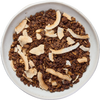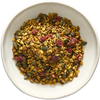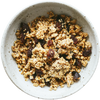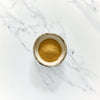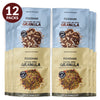
Creatine and Longevity: Can This Simple Supplement Help You Age Better?
When most people hear “creatine,” they think of gym shakes and muscle gains, not healthy aging.But science is painting a different picture.
Beyond its well-known role in boosting strength and performance, creatine is emerging as a potential longevity ally, supporting not just your muscles, but your brain, bones, metabolism, and cellular health as you age.
Let’s unpack what the research says about creatine and how it may help you live and feel younger for longer.
What Is Creatine (and Why Does It Matter for Longevity)?
Creatine is a naturally occurring molecule made from amino acids. It’s stored in your muscles, brain, and other tissues, where it helps produce ATP, your body’s main source of quick energy.
Think of it like a battery pack for your cells. When you move, think, or even repair tissue, ATP powers it all.As we age, our ability to generate and recycle ATP declines, and that’s where creatine can help.
By maintaining higher cellular energy, creatine supports the systems most affected by aging:
- Muscle strength & physical function
- Brain health & cognition
- Bone density & metabolic resilience
- Overall energy and vitality
Muscle, Mobility, and the Power of Staying Strong
Loss of muscle mass (sarcopenia) is one of the biggest predictors of frailty and reduced lifespan.Research shows that creatine supplementation, especially alongside resistance training, helps older adults:
- Build and maintain lean muscle
- Improve physical performance
- Support bone density
- Reduce the risk of falls and injuries
A 2019 meta-analysis found that older adults taking creatine + resistance training gained significantly more muscle mass and strength than those training without it.
In short: stronger muscles = longer, more independent life.
Brain Health and Cognitive Longevity
Your brain consumes a massive amount of energy, up to 20% of your body’s total ATP.
As we age, mitochondrial function (your cells’ energy engines) declines, contributing to fatigue, slower thinking, and even neurodegenerative risk.
Creatine helps buffer that energy loss.Studies have shown that creatine supplementation may improve memory, focus, and mental clarity, particularly under stress, sleep deprivation, or cognitive strain.
Researchers are also exploring creatine’s potential role in supporting conditions like Alzheimer’s and Parkinson’s, though more evidence is needed.
Bone Health and Metabolic Support
Creatine may also have indirect benefits for bone health, especially in post-menopausal women.When paired with strength training, it can increase muscle force on bone tissue,a stimulus that helps maintain bone density.
Additionally, because creatine supports energy metabolism at the cellular level, it may help with overall vitality, insulin sensitivity, and recovery , all key factors in healthy aging.
Cellular Aging and Mitochondrial Support
Mitochondria are the engines of your cells ,and when they slow down, aging accelerates.
Creatine helps preserve mitochondrial function by recycling ATP efficiently, which can reduce oxidative stress and cellular damage over time.
Emerging research suggests this could play a role in slowing some biological aging markers, though more human studies are needed to confirm this exciting link.
The Foodhak Perspective: Strength, Balance, Longevity
At Foodhak, we believe longevity isn’t just about living longer, it’s about living better.
Creatine isn’t just for athletes anymore , it’s a cellular energy enhancer that supports your muscles, mind, and metabolism throughout life.
While it’s not a magic bullet for aging, it’s one of the most well-researched, affordable, and safe tools to help you maintain strength, vitality, and resilience as you grow older.









